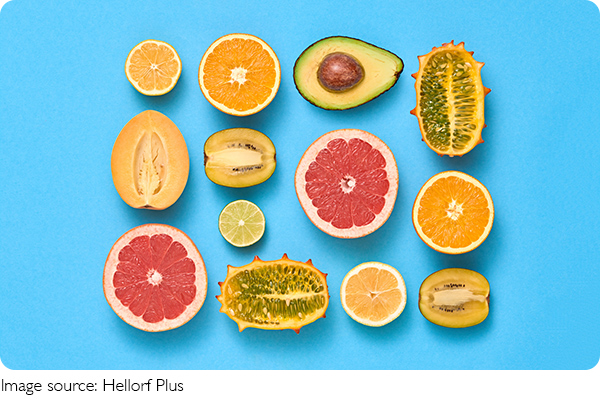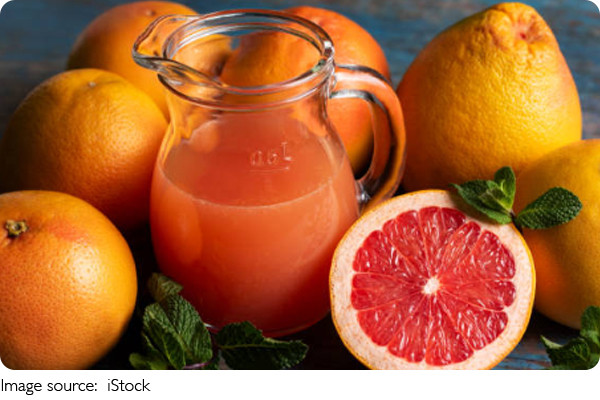Burn Calories Smarter

Let’s be real—fueling your body shouldn’t be complicated.
You don’t need overpriced bars or mystery shakes to crush your workouts. Sometimes, the smartest choice is also the simplest: fruit.
Yep, whole, real fruit.
Loaded with fiber, vitamins, and natural energy, the right fruits can help you burn calories more efficiently, curb cravings, and stay energized—without any added junk.
Fitness experts aren’t just recommending fruit because it’s “healthy”—they’re choosing specific ones that work with your body to keep progress steady and sustainable.
Here are five fruits that pull double duty: fueling your workouts and helping you lean out.
1. Grapefruit — The Appetite Controller
Registered dietitian Erin Palinski-Wade highlights that grapefruit contains a unique combination of fiber and water that helps increase feelings of fullness, which can naturally reduce calorie intake without conscious effort. Grapefruit is also rich in potassium and vitamin C, supporting overall health. Research published in the Journal of Medicinal Food found that participants who ate half a grapefruit before meals experienced greater weight loss and reduced insulin resistance compared to those who didn't.
Best way to use it: Eat half a grapefruit before breakfast or lunch to help curb appetite. Its tangy flavor can awaken taste buds without added sugar. If the sourness is too strong, try pairing it with a sprinkle of cinnamon instead of sweeteners for a flavorful alternative.
It’s important to note that grapefruit's benefits are most effective as part of an overall balanced, calorie-controlled diet. People taking certain medications should consult their doctor before adding grapefruit to their diet due to potential interactions. For most with healthy kidney function and no medication contraindications, half a grapefruit daily is a moderate, beneficial intake.
2. Blueberries — The Metabolism Booster
Regular blueberry consumption is widely recommended for overall health benefits, especially for heart health, metabolic support, and cognitive function.These tiny berries pack a surprising punch when it comes to fitness. Blueberries are rich in anthocyanins—plant compounds with antioxidant, anti-inflammatory, and metabolic benefits.
Scientific studies link regular consumption of blueberries with improved cardiovascular health, and enhanced insulin sensitivity. A study from the University of Michigan Cardiovascular Center found that blueberries helped reduce abdominal lipids and improve insulin sensitivity in lab tests
Best way to use it: Add a handful to your post-workout smoothie or mix into Greek yogurt for a high-protein, antioxidant-rich snack. Frozen blueberries work just as well as fresh for most recipes.
3. Watermelon — The Hydration Hero
If you've ever felt sluggish during a workout, dehydration might be the culprit. Watermelon, which is about 92% water, is an excellent pre- or post-workout snack to help maintain hydration. It's low in calories yet sweet enough to satisfy cravings.
Sports nutritionist Kelly Pritchett, Ph.D., highlights that watermelon contains L-citrulline, an amino acid shown by scientific studies to help reduce muscle soreness after exercise. Research published in the Journal of Agricultural and Food Chemistry found that drinking natural watermelon juice before exercise reduced muscle soreness for up to 72 hours after intense workouts. L-citrulline in watermelon promotes better blood flow and may enhance muscle recovery and exercise performance.
Best way to use it: Blend it into a chilled smoothie with mint, or simply cube and chill it for a refreshing summer snack.
4. Apples — The Fiber Powerhouse
Apples are rich in soluble fiber, particularly pectin, which slows digestion and promotes feelings of fullness. This helps reduce overeating later in the day. Pectin, a gel-forming fiber, absorbs water and forms a viscous gel in the digestive tract, which slows gastric emptying and prolongs the sense of satiety. Additionally, pectin acts as a prebiotic, nourishing beneficial gut bacteria and supporting healthy digestion. Besides promoting fullness, the act of chewing foods like apples may also trigger earlier satiety signals, as research published in the journal Appetite suggests that foods requiring more chewing can help control calorie intake.
Best way to use it: Keep a small apple in your gym bag for a quick pre-workout snack. Pair it with almond butter if you want to add a protein boost.
5. Bananas — The Workout Fuel
Bananas are often misunderstood in weight-loss diets due to their carbohydrate content, but they are actually one of the best pre-workout fruits. They provide fast-digesting carbohydrates that supply quick energy and are easy to digest, making them ideal for consumption before exercise. Additionally, bananas are rich in potassium, an essential electrolyte that helps prevent muscle cramps and supports muscle function during workouts.
A study published in PLoS One and other research have found that bananas are as effective as sports drinks for maintaining endurance in cyclists, with the added benefits of antioxidants, fiber, and vitamins that sports drinks typically lack. Unlike many commercial sports drinks, bananas do not contain added sugars or artificial ingredients, making them a natural and wholesome option for fueling exercise.
Best way to use it: Eat a banana about 30–60 minutes before your workout for sustained energy and to help prevent cramps. Its natural carbohydrate content replenishes glycogen stores, while potassium and other nutrients support muscle performance and recovery.

How to Make Them Work for You
Just eating these fruits randomly won't give you maximum results—you need to time and pair them wisely. Here's a quick approach:
1. Pre-workout: Banana or watermelon for quick energy and hydration.
2. Post-workout: Blueberries with Greek yogurt for recovery.
3. Between meals: Grapefruit or apple to keep hunger at bay.
If you think of fruit as just "nature's candy," you're missing out on its potential as a serious fitness tool. The right choices, eaten at the right time, can help you train harder, recover faster, and slim down without feeling deprived. Next time you stock up at the grocery store, which of these five will end up in your basket? You might find they work harder for your goals than some supplements you've tried.
-
 Movie Effects EvolutionA detailed look at the history and future trends of movie special effects, from early techniques to cutting-edge technology
Movie Effects EvolutionA detailed look at the history and future trends of movie special effects, from early techniques to cutting-edge technology -
 Sweet Bite BlissHow to Make Show-Stopping Cupcakes That Everyone Will Beg You For!
Sweet Bite BlissHow to Make Show-Stopping Cupcakes That Everyone Will Beg You For! -
 Beat Car HeatWhy Most Drivers Fail to Fix Their Car AC—and What You Can Do Differently!
Beat Car HeatWhy Most Drivers Fail to Fix Their Car AC—and What You Can Do Differently!